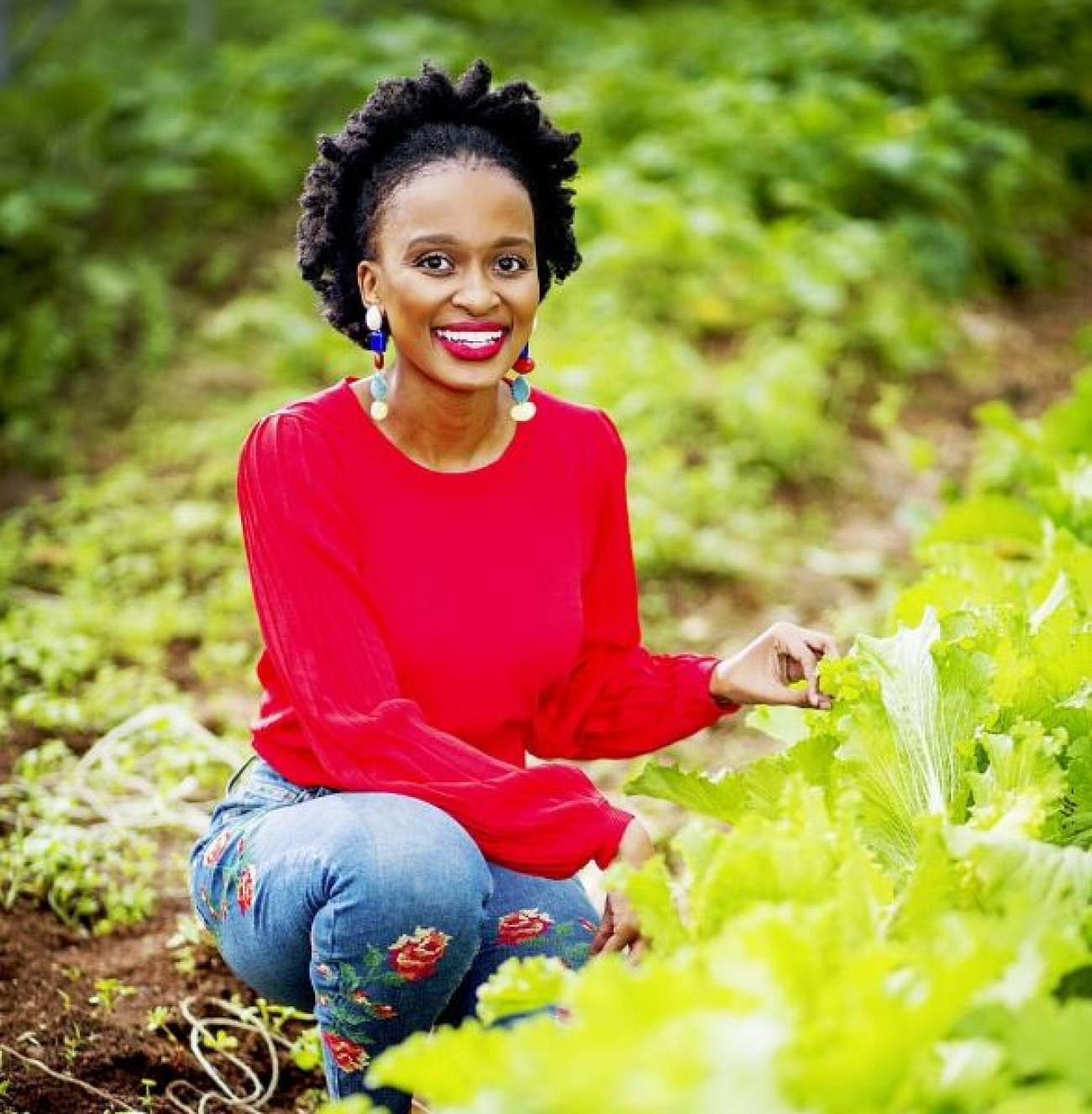Interview: Ndoni Mcunu, climate activist, scientist and trailblazer

There is a dire need to increase the available data on climate reporting in Africa.
By: Nombulelo Malinga
Ndoni Mcunu, the late Founder of Black Women in Science and advocate for climate change on a global scale was well-versed in the field of science and technology with a special focus on climate change and environmental sustainability.
She was a sterling example of success and beacon of hope to young black women in science. Some of her accolades included being voted as the Gagasi FM SHERO of 2018, listed as one of the Mail & Guardian Top 200 in the education field (2016), being accepted as a 2017 Mandela Washington Fellow and winning the Humanitarian Global Award for the Most Distinguished Women Change Makers in Africa in 2020-2021.
Ms. Mcunu’s contribution to science and women empowerment has been globally recognized. She was also a Ph.D. candidate at Wits University focusing on action-oriented climate change research. A few weeks before she passed on, InFocus’s Nombulelo Malinga sat down with her to find out more about her journey in the field of climate science.
Tell us about your journey as a climate scientist. Why this route?
My journey wasn’t necessarily the most straightforward in the climate science space as it’s a fairly new field. I started off doing environmental sciences and through my Ph.D. I got into climate science. I believe there is an urgency and a need for us to change the way we behave towards the environment.
There's a diverse voice as well as diverse knowledge when it comes to climate science, especially in Africa. I believe that as Africans it’s important for us to know the impacts of our actions on the environment so we can accurately predict and act swiftly where climate related disasters may occur.
Can you tell us about Black Women in Science and its impact?
Black Women in Science is a registered non-profit organization which I founded as I saw a lack of diversity and inclusion where black, female scientists were concerned. My organization aims to deliver capacity development interventions that target young black women scientists and researchers as well as aid in the workplace integration system once scientists graduate from university.
As much as I believe representation matters, I always remind young scientists that we shouldn’t focus too much on the fact that there are not enough of us but rather equip ourselves with the necessary skills to ensure that we drive true impact and change where science is concerned. Now, our core focus fuses the need for scientific and entrepreneurship skills to be maximized.
In climate change communications, we hear a lot about how humans are creating the problem, but we don’t often hear about how they are a part of the solution. How can we shift the narrative to spotlight solutions and increase the visibility of people’s actions to lower their carbon footprint?
There’s definitely a need for an integrated conversation between leaders and scientists. We need to understand the economic impacts of a zero-carbon footprint and environment. We need to have frank conversations on how to manage the associated risks.
A zero-carbon footprint could greatly assist the dire unemployment rate we face in South Africa. We could breed healthier environments and build a better future for the upcoming generations. However, we need to be able to have the logical conversation where we discuss and define what this means for Africa. Something I strongly believe in is that we also need to practice the culture of accountability.
As an African continent, what is our contribution towards carbon emissions and are we holding accountable those who are emitting more than us? We need to focus on accountability and reach agreements with governments to truly see change.
As one of the Top 40 African Leaders in Climate Resilience, how would you advise South African to be prepared for climate and environmental shocks rather than reacting to them as they happen?
In my opinion, a tangible approach would most definitely see a better disaster management system in the country. This would highlight us not being in a situation where we are reacting to extreme weather events but rather, we are proactive.
This would need better data collection services, access to African data as well and training in technology and techniques that are currently being used on a global scale. Emerging researchers need to be able to detect upcoming climate and environmental shocks that could impact our communities.
One thing that I have been doing recently is expanding my access data in the scientific fields. Although access to this data from an African perspective is limited, it is a starting point and should be expanded for generations to come. Access to the correct data is extremely important as it allows you to predict and create scenarios of likely events that could happen which assist in detecting early warning signs of climate related shocks.
In 2020 you stated that “not enough” was being done for climate reporting in Africa which continues to reflect wrong ground realities. Do you still think this is the case and why?
I do. There is a dire need to increase the available data on climate reporting in Africa. We need to not only change the narrative that not enough is being done in Africa but bring to the forefront exactly what is being done. That is my mission.
With over 10 years of experience, Ms. Mcunu’s work in climate change advocacy and leadership in the development of women will live on eternally. We send our deepest condolences to her loved ones since her death in April 2022.















